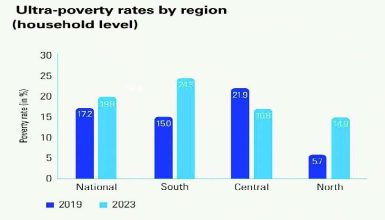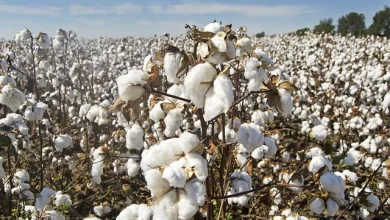Trade balance widens to K206.1bn in Aug
Malawi’s trade balance has widened by 20 percent between July and August this year, largely on account of fewer exports amid rising imports, Reserve Bank of Malawi (RBM) data shows.
The RBM data contained in the August Monthly Economic Review Report published on Thursday shows that the trade balance widened to $187.9 million (K206.1 billion) from a deficit of $161 million (K171.7 billion) recorded in July.

According to the report, the deficit was a result of a surge in imports which outpaced an increase in exports where imports stood at $314.2 million (about K344.1 billion) while exports were $126.4 million (about K138 billion).
“The upturn in imports surge in imports was attributed to importation of $60 million (about K65.7 billion) fuel, $27 million (about K29.6 billion) pharmaceuticals, and $67.3 million (about K73.6 billion) fertilisers.
“This compares to imports worth of $49.6 million (about K52.8 billion) fuels, $6.8 million (about K7.2 billion) pharmaceuticals, and $38.8 million (about K41.3 billion) fertilisers, in July,” reads the report, in part.
The data further shows that exports grew to $126.4 million (about K138 billion) in August, from $1.2.1 million (about K108.2 billion) recorded in July and compared to $101.7 million (about K105.1 billion) in August last year.
The growth in exports according to the data was primarily driven by marginal increased sales of sugar, tobacco, pulses and oil seeds, tea and coffee.
Malawi’s export basket continued to be highly dominated by agricultural products, which accounted for 60 percent of the export basket.
Ironically, the most agricultural products, for instance, sugar and tobacco have been on the decline due to, among others, weather conditions.
National Working Group on Trade Policy chairperson Frederick Changaya in an interview urged the replacement of traditional exports of produce with high-value added products to penetrate the export market and close the trade balance.
“We export cheap produce and import high-value commodities,” he said.
Meanwhile, former Minister of Finance and Economic Affairs Sosten Gwengwe, while admitting that the trade balance remains a challenge, highlighted in the 2023/24 National Budget statement that the government will continue to address issues of export diversification and import substitution.
He said the government will strengthen the balance of payment position as well as promote local manufacturing.
Government is also banking on the National Export Strategy II (NES II) (2021 – 2026), which is anchored on industrial development through manufacturing of value-added products for exports, to close the trade balance.
Ministry of Trade spokesperson Mayeso Msokera also admitted earlier that trade balance has become an issue of concern, “but government continues to implement policies and strategies to narrow the trade gap”.
He said the main focus is to build the export readiness of Malawi exporters and develop regional and global value chains, promote entrepreneurship with emphasis on micro, small and medium enterprises and address critical enablers related to exports such as energy, transport, market intelligence and trade facilitation.






One Comment